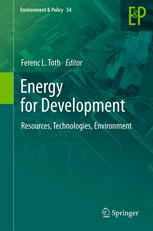

Most ebook files are in PDF format, so you can easily read them using various software such as Foxit Reader or directly on the Google Chrome browser.
Some ebook files are released by publishers in other formats such as .awz, .mobi, .epub, .fb2, etc. You may need to install specific software to read these formats on mobile/PC, such as Calibre.
Please read the tutorial at this link: https://ebookbell.com/faq
We offer FREE conversion to the popular formats you request; however, this may take some time. Therefore, right after payment, please email us, and we will try to provide the service as quickly as possible.
For some exceptional file formats or broken links (if any), please refrain from opening any disputes. Instead, email us first, and we will try to assist within a maximum of 6 hours.
EbookBell Team

4.7
26 reviewsThis collection of contributions from a diverse group of prominent international scientists and policy makers brings together their in-depth analyses and innovative ideas about how to resolve the ‘energy for development’ predicament. It includes studies quantifying the role of energy in socioeconomic development, analysis of the interplay between supranational and national institutions in policy implementation, the energy implications of demographic trends such as urbanisation, and exploration of supply-side issues such as the potential role of nuclear energy and ‘cleaning’ fossil fuel energy generation through carbon capture.